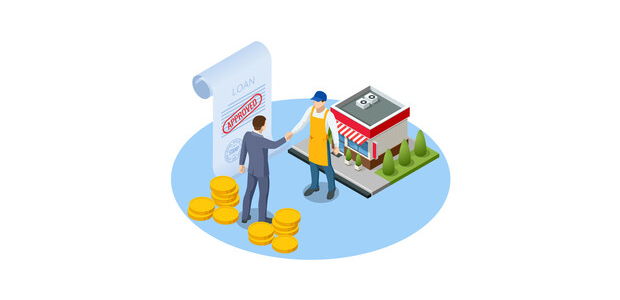
Small businesses invest in growth as demand for larger loans rises
Growth continues to be the top reason for SMEs accessing finance, with even more brokers (43%) citing this as the most common SME loan purpose.
Small business owners are feeling confident about taking on larger amounts of finance to support their growth ambitions in 2022, according to iwoca’s quarterly SME Expert Index.
iwoca’s Q4 SME Expert Index is based on insight from UK brokers who collectively submitted over 3500 applications for unsecured finance on behalf of their SME clients over a four-week period in December.
The index reveals that close to half (43%) of brokers saw financing for growth as the most common purpose for a loan among SMEs. This is the second consecutive quarter that SMEs have cited growth as their primary focus, and it’s an upwards trend (up from 35% in Q3).
As economic fears around the spread of the Omicron variant begin to dissipate, fewer than one in ten (9%) brokers reported ‘recovery from lockdown or closure’ as the most common loan purpose for SMEs. This represents a decrease of 11 percentage points since the last quarter, hinting that small business preoccupation with shorter term Covid concerns has evolved into ambitions for expansion.
These shifts in priorities reflect a change in confidence in the economy over the past year. In the first quarter of 2021, only 25% of brokers cited growth as the most common reason for finance, compared to 43% in Q4. Similarly, whilst 41% pointed to managing cash flow as a primary reason in Q1, this has fallen to 24% as COVID restrictions ease and businesses look forward to life post-pandemic.
SMEs looking for larger loans
The confidence of small businesses in the economic recovery is reflected in the demand for larger loans. Over a quarter (26%) of brokers say that loans valued between £100,001 and £200,000 are the most commonly requested among their SME clients, increasing by 17 percentage points since Q3, when fewer than one in ten (9%) loan requests were of this size.
In contrast, demand for small loans, less than £25,000 – which were the most commonly requested in Q3 – has since fallen by 15 percentage points.
Recovery Loan Scheme extension keeps demand at bay
Despite the extension of the Recovery Loan Scheme in the Chancellor’s Autumn Budget in November 2021, demand for the government-backed programme hasn’t seen a significant spike. With RLS now set to wind down in June this year, a quarter of brokers (25%) saw demand fall over the last three months, balanced by 32% reporting an increase.
Colin Goldstein, Commercial Growth Director of iwoca, said “This quarter’s SME Expert Index indicates growing confidence among small businesses, who have endured the blow of the Omicron shock. After two years of uncertainty, SMEs are now able to set their sights on growth – an encouraging sign that the mainstay of the UK economy is on its feet once again. We need to continue to support small businesses in accessing finance, to power this growth and contribute to a meaningful economic recovery.”
Broker Sharon Cook, Director of Choice Business Loans, added “We had two camps of clients throughout 2021. The first camp: those who needed support recovering from the pandemic, possibly where the assistance on offer at the time was not enough for them. The pandemic has not just caused some businesses to have a huge hole in trading, but it has also delivered other challenges such as supply chain issues and price increases. These things put pressure on SMEs and having access to cash flow solutions to help ease the burden was the number one priority for many business owners.
“The second camp: business owners who started to experience a growth phase of the business and sought finance solutions to help them get to the next level.
“Towards the end of 2021, the second camp – those in the growth phase – expanded. Certainly, some areas of the SME market place have seen a boom, especially where businesses have been forced to pivot and explore new sales avenues. Online B2C sales are a clear winner for expansion and we’re seeing businesses need more cash to turn the stock more quickly. Even hospitality is bouncing back; I have two clients looking to get second premises.
“I think that shows the real defiant and fighting spirit that is so prevalent in SME business owners. Having access to good quality finance is, and always has been, imperative to SMEs to help them survive and to thrive.”
SME Expert Index
This SME Expert Index from iwoca provides a snapshot on what’s driving small business owners to borrow, the trends seen in the types and value of finance being accessed, and how these patterns change as the country emerges from the pandemic. iwoca publishes this index every quarter to capture the experience of brokers working with small businesses.
iwoca is accredited to the Recovery Loan Scheme, having distributed nearly £400 million to small businesses through the Government's Coronavirus Business Interruption Loan Scheme (CBILS). In June 2020 the lender launched iwocaPay – an online buy now pay later invoice checkout to help small businesses get paid. iwoca is reaching 1.8 million businesses across the UK and Germany through its embedded lending technology, which allows businesses to access loans through a range of platforms such as accountancy software apps and digital neo-banks. The company has also launched free mental health support for all small businesses in the UK, in partnership with online therapy platform Spill. Recently, iwoca launched its Revenue Based Loan, enabling businesses accepting card payments in any industry sector to repay their loans in line with the seasonal flow of their businesses.


